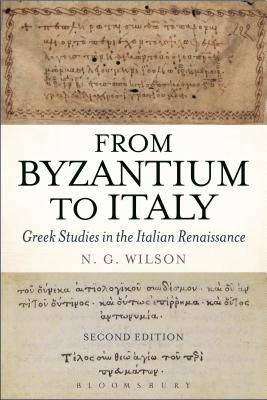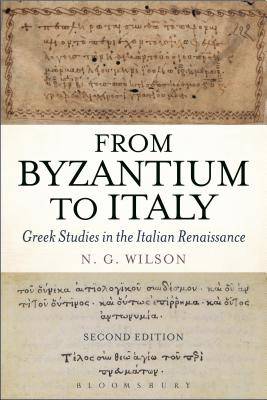
- Afhalen na 1 uur in een winkel met voorraad
- Gratis thuislevering in België vanaf € 30
- Ruim aanbod met 7 miljoen producten
- Afhalen na 1 uur in een winkel met voorraad
- Gratis thuislevering in België vanaf € 30
- Ruim aanbod met 7 miljoen producten
Zoeken
€ 72,95
+ 145 punten
Omschrijving
Which famous poet treasured his copy of Homer, but could never learn Greek? What prompted diplomats to circulate a speech by Demosthenes - in Latin translation - when the Turks threatened to invade Europe? Why would enthusiastic Florentines crowd a lecture on the Roman Neoplatonist Plotinus, but underestimate the importance of Plato himself? Having all but disappeared during the Middle Ages, classical Greek would recover a position of importance - eventually equal to that of classical Latin - only after a series of surprising failures, chance encounters, and false starts.
This important study of the rediscovery and growing influence of classical Greek scholarship in Italy from the 14th to the early 16th centuries is brought up to date in a new edition that reflects on the recent developments in the field of classical reception studies, and contains fully up-to-date references to aid students and scholars. From a leading authority on Greek palaeography in the English-speaking world, here is a complete account of the historic rediscovery of Greek philosophy, language and literature during the Renaissance, brought up-to-date for a modern audience of classicists, historians, and students and scholars of reception studies and the Classical Tradition.
This important study of the rediscovery and growing influence of classical Greek scholarship in Italy from the 14th to the early 16th centuries is brought up to date in a new edition that reflects on the recent developments in the field of classical reception studies, and contains fully up-to-date references to aid students and scholars. From a leading authority on Greek palaeography in the English-speaking world, here is a complete account of the historic rediscovery of Greek philosophy, language and literature during the Renaissance, brought up-to-date for a modern audience of classicists, historians, and students and scholars of reception studies and the Classical Tradition.
Specificaties
Betrokkenen
- Auteur(s):
- Uitgeverij:
Inhoud
- Aantal bladzijden:
- 248
- Taal:
- Engels
Eigenschappen
- Productcode (EAN):
- 9781474250474
- Verschijningsdatum:
- 17/11/2016
- Uitvoering:
- Paperback
- Formaat:
- Trade paperback (VS)
- Afmetingen:
- 157 mm x 234 mm
- Gewicht:
- 362 g

Alleen bij Standaard Boekhandel
+ 145 punten op je klantenkaart van Standaard Boekhandel
Beoordelingen
We publiceren alleen reviews die voldoen aan de voorwaarden voor reviews. Bekijk onze voorwaarden voor reviews.











